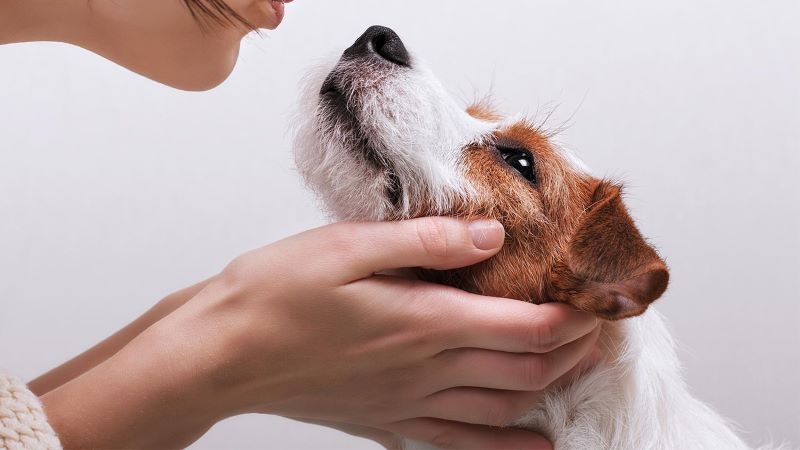I’ve always felt that my dog can sense when I am sad. She’ll either lie across my feet or attempt to climb into my lap--all 75 pounds of her--to comfort me. Similarly, when there is excitement in the house, for example my boys rough housing in the family room, she is right in the middle of the action jumping around and attempting to insert herself into the scuffle. So, if she can play the part of empathizer when I am feeling down and the sights and sounds of a friendly scuffle excite her too, why wouldn’t she be able to detect the emotion of fear?
The study
According to Sarah Wooten, DVM, CVJ, “Dogs have olfactory superpowers that can detect a human’s emotional state by the scent that a human emits.” The study, Interspecies Transmission of Emotional Information Via Chemosignals: From Humans to Dogs, proves that dogs can smell human emotions. How? When a person is afraid, their sweat glands secrete moisture in the form of sweat. The sweat contains a chemical that dogs can sniff out.
The study was conducted using golden retrievers and labrador retrievers. The study analyzed the dogs’ reactions to specific odors after the odors were collected from random people when they were happy and afraid. The dogs were then exposed to their owner, a stranger, and an odor dispenser. The researchers found that the dogs exposed to the “happy odors” had lower heart rates and interacted more with the stranger. The dogs exposed to the “fear odor” had higher heart rates and displayed more stress behaviors. They interacted less with the stranger and looked to their owners for reassurance.
Dogs can sense fear
The conclusion of the study is that chemosignals, odors that we release according to our emotions, are able to be sensed by dogs. They sense when we are happy, and they sense when we are afraid. Which might be why our four-legged friends seem to act differently around people who are afraid of dogs. The dogs are picking up on the people’s fear, and it launches them into the fight, flight, or freeze stress response – feedback from the autonomic nervous system. This response is essential for adaptation and survival.
What does it mean for pet owners?
The cool thing about this study is that we can use it to benefit ourselves, as dog parents, both physically and mentally. Studies have shown that owning a pet can improve your life, including causing a more positive mood, give us a sense of purpose, and even improve cardiovascular health. Being a dog owner can help reduce anxiety by reminding us to live in the moment, as dogs do. Dogs don’t worry about what happened last week, yesterday, or even in the last minute! They’re not stressed about finding the perfect holiday gift or paying the electric bill on time. We can tap into their happiness and ride along on the coattails of their positivity when we’re just not feeling up for life. Feeding and caring for a dog gives us a reason to get up and out of the house. Making sure our pets get regular exercise forces us to stay in shape as well.
Dogs’ noses are estimated to be 300 times more powerful than humans. They’ve been trained to sniff out everything from bed bugs to explosive devices. And now we know that a dog that is in tune with your emotions can actually help you manage fear and stress. Is there anything a dog can’t do?

